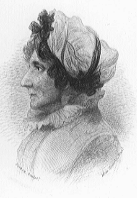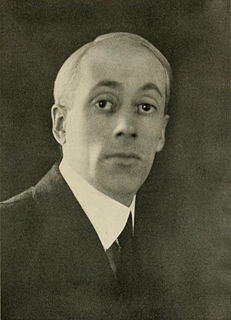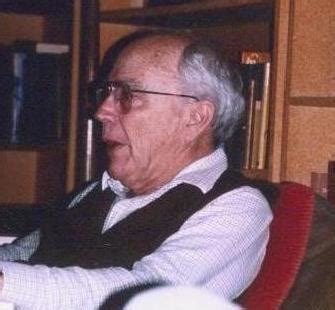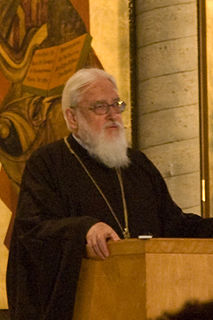A Quote by Anna Letitia Barbauld
Let us confess a truth, humiliating to human pride; - a very small part only of the opinions of the coolest philosopher are the result of fair reasoning; the rest are formed by his education, his temperament, by the age in which he lives, by trains of thought directed to a particular track through some accidental association - in short, by prejudice.
Related Quotes
The ordinary method of education is to imprint ideas and opinions, in the strict sense of the word, prejudices, on the mind of the child, before it has had any but a very few particular observations. It is thus that he afterwards comes to view the world and gather experience through the medium of those ready-made ideas, rather than to let his ideas be formed for him out of his own experience of life, as they ought to be.
[Man] is the only animal who lives outside of himself, whose drive is in external things—property, houses, money, concepts of power. He lives in his cities and his factories, in his business and job and art. But having projected himself into these external complexities, he is them. His house, his automobile are a part of him and a large part of him. This is beautifully demonstrated by a thing doctors know—that when a man loses his possessions a very common result is sexual impotence.
He had two lives: one, open, seen and known by all who cared to know, full of relative truth and of relative falsehood, exactly like the lives of his friends and acquaintances; and another life running its course in secret. And through some strange, perhaps accidental, conjunction of circumstances, everything that was essential, of interest and of value to him, everything in which he was sincere and did not deceive himself, everything that made the kernel of his life, was hidden from other people.
Many people think that when we practice agriculture, nature is helping us in our efforts to grow food. This is an exclusively human-centered viewpoint... we should instead, realize that we are receiving that which nature decides to give us. A farmer does not grow something in the sense that he or she creates it. That human is only a small part of the whole process by which nature expresses its being. The farmer has very little influence over that process... other than being there and doing his or her small part.
There are many who hold, as I do, that the most important part of life is not the age of university studies, but the first one, the period from birth to the age of six. For that is the time when a man's intelligence itself, his greatest implement, is being formed. But not only his intelligence; the full totality of his psychic powers.
What becomes decisive to a Justice's functioning on the Court in the large area within which his individuality moves is his general attitude toward law, the habits of the mind that he has formed or is capable of unforming, his capacity for detachment, his temperament or training for putting his passion behind his judgment instead of in front of it. The attitudes and qualities which I am groping to characterize are ingredients of what compendiously might be called dominating humility.
Prejudice is of ready application in the emergency; it previously engages the mind in a steady course of wisdom and virtue, and does not leave the man hesitating in the moment of decision, skeptical, puzzled and unresolved. Prejudice renders a man's virtue his habit; and not a series of unconnected acts. Through past prejudice, his duty becomes part of his nature.
Step back in time; look closely at the child in the very arms of his mother; see the external world reflected for the first time in the yet unclear mirror of his understanding; study the first examples which strike his eyes; listen to the first words which arouse within him the slumbering power of thought; watch the first struggles which he has to undergo; only then will you comprehend the source of his prejudices, the habits, and the passions which are to rule his life. The entire man, so to speak, comes fully formed in the wrappings of his cradle.
Man's knowledge of science has clearly outstripped his knowledge of man. Our only hope of making the atom servant rather than master lies in education, in a broad liberal education where each student within his capacity can free himself from trammels of dogmatic prejudice and apply his educational accoutrement to besetting social and human problems.
Nature never rhymes her children, nor makes two men alike. When we see a great man, we fancy a resemblance to some historical person, and predict the sequel of his character and fortune, a result which he is sure to disappoint. None will ever solve the problem of his character according to our prejudice, but only in his high unprecedented way.
The culture and educational system of the contemporary West are based almost exclusively upon the training of the reasoning brain and, to a lesser degree, of the aesthetic emotions. Most of us have forgotten that we are not only brain and will, senses and feelings; we are also spirit. Modern man has for the most part lost touch with the truest and highest aspect of himself; and the result of this inward alienation can be seen all too plainly in his restlessness, his lack of identity and his loss of hope.
Jesus Christ, who had all the power in the world, saw us enslaved by the very things we thought would free us ... He laid aside the infinities and immensities of His being and, at the cost of His life, paid the debt for our sins, purchasing us the only place our hearts can rest, in His Father's house. Knowing He did this will transform us from the inside out.





































